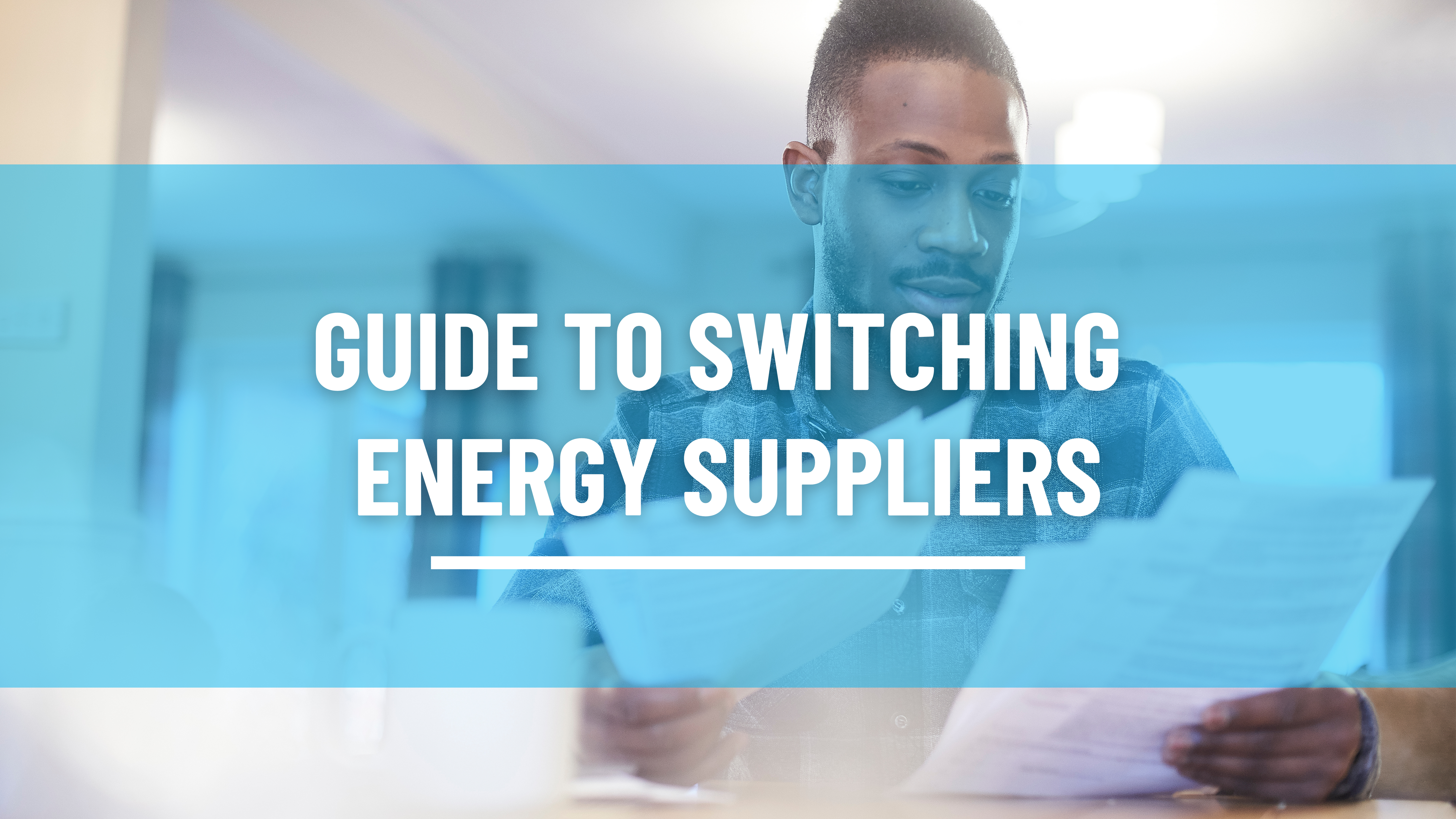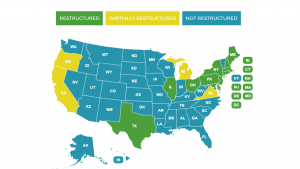
If you live in one of the states below with a competitive energy market, did you know you can shop for your electricity or gas supplier? Well, you can — and state-run shopping websites make it more convenient and straightforward than ever.

At REAL, our goal is to educate customers about their shopping options and help them make informed decisions when choosing a new supplier for their home or business. This guide informs potential customers about how to make the switch, includes contract terms to be aware of, and has helpful tips so you can take control of your energy bill and find the best value possible.
Before we get into the guide, let’s discuss the benefits of competitive markets and reasons you may want to shop:
Cost-savings: If you do not shop, you are usually left paying a default or standard rate with your local utility and are limited to one energy product. Your local utility will periodically increase its price per kilowatt hour (kWh) to account for its operating costs and the price it paid for supply in the market. To combat incurring unwanted rate increases, customers with energy choice can shop around and find less expensive short-term rate contracts or lock into a rate for a long-term, predictable contract from competitive suppliers. The option is yours to shop and compare prices so you can switch and save.
Carbon-free energy: Switching suppliers may not always be about the lowest price. Some customers value reducing their carbon footprint, so they may want to switch to a supplier who offers more clean energy options than their utility. When you shop, you can choose a supplier who offers 100% clean or carbon-free energy options, helping you drive your own environmental goals while providing a huge market incentive for clean energy resources nationwide.
Product variety: Depending on market restrictions, some suppliers offer unique and innovative products and services that support your individual energy needs. You may select a supplier because it offers free nights and weekends for electric vehicle charging at your home. Or, maybe you’ll decide to choose the supplier that offers home warranty products as a discounted product bundle or smart home devices that help you control your energy usage. Again, it’s your choice.
Customer service: In competitive markets, retail energy providers must earn their customers, which makes customer service the heart of what drives their business. They listen to customers and track usage and demand and respond by altering services and offering products that customers have asked for. On the other hand, monopoly energy companies typically offer a universal product for all customers and aren’t built to tailor products and services unique to each customer. As a result, shopping customers can usually find a new energy provider which offers superior customer service and product variety compared to incumbent utilities.
A few key things to know before shopping:
Before you get started, the most important information to know is your price to compare, which is the standard rate offered by your local utility.
Sometimes it can be hard to find, as it’s located at different places on different bills and called different things. For instance, it can be called “standard service rate,” “generation service charge,” “generation charge,” or “basic service charge.”
Look for the price per kWh you are paying on your electric bill. Once you figure out the rate that you’re paying to your utility, then you can shop online to compare what alternative rates are available to you by a competitive supplier.
But beware, some utilities are not required to list all fees, so comparing a utility’s base price to the prices offered by other retail energy companies is not always as straightforward as it seems.
If you cannot find your price to compare, you should contact your utility company’s customer service number listed on your bill.
To help with this process, REAL created shopping guides for Massachusetts, Connecticut and Pennsylvania customers to educate them on how to shop and compare electric suppliers, and we provide additional resources for customers in other states who want to exercise their energy choice.
Once you understand your price to compare, shopping is the easy part.
It really is that simple. The utility and your chosen retail energy supplier will take care of the rest.
Be sure to make note of when your plan expires, so you can choose to renew, or choose a new plan before your current plan expires. Most states require suppliers to send a notice to customers when their plan is set to expire. In most cases, plans are automatically renewed. You can reach out to your supplier to learn more about your renewal options.
Before you start shopping, there are things to keep in mind.
In a competitive market, suppliers are competing for your business, so customer service is imperative. This means they offer a variety of plans to try to get you — and keep you — as a customer. This includes allowing customers to set a budget, track their usage, improve efficiency, get alerts so they can be more informed, and so much more. Innovation is the hallmark of the retail energy market. Make sure you’re taking full advantage of the variety of products and services available to you.
When you shop, you can find energy solutions that are tailored to your specific needs and circumstances. Consumers can prioritize what matters most to them, whether that is contract length, price, carbon-free energy, cash back, flexibility, incentives for reducing usage or using energy at a certain time of day, or other factors that best fit the way they use electricity. The first factor to consider is the type of billing plan you want to enroll in. Here are the most common types of billing:
What matters most is, with shopping, you have the option to choose the plan that is right for you. You get to select the supplier and plan that matches your preferences and brings you the most overall value.
Some tips before you switch:
While the process of shopping is easy, the responsibility is still on you to understand what you’re signing up for. It’s best to be cautious and avoid any deals that seem too good to be true.
But don’t fear. There are consumer protections in place. For example, in Pennsylvania, there is a list of shoppers’ rights that you should review before getting started. Many states list the rights and protections consumers have on the official sites for shopping.
If you do run into an issue, reach out to your supplier first. If you aren’t satisfied with the outcome, each competitive state has a consumer advocate office that you can contact for further assistance.
With that, you’re ready to shop! Here are some of the official sites for competitive markets in states that offer competitive rates.
VIEW YOUR STATE’S SHOPPING PLATFORM OR RESOURCES BELOW:
Connecticut: https://energizect.com/rate-board/compare-energy-supplier-rates
Delaware: https://depsc.delaware.gov/customer-electric-choice/
Illinois: https://www.pluginillinois.org/
Maine: https://www.maine.gov/meopa/electricity/electricity-supply
Maryland: https://www.mdelectricchoice.com/
Massachusetts: https://www.energyswitchma.gov/#/
New Hampshire: https://www.energy.nh.gov/engyapps/ceps/shop.aspx
New Jersey: https://www.energy.nh.gov/engyapps/ceps/shop.aspx
New Jersey: https://www.nj.gov/bpu/commercial/shopping.html
New York: https://documents.dps.ny.gov/PTC/home
Ohio: https://www.energychoice.ohio.gov/
Pennsylvania: https://www.papowerswitch.com/
Rhode Island: https://www.ri.gov/app/dpuc/empowerri
Texas: https://www.powertochoose.org/
Washington, D.C.: https://dcpowerconnect.com/approved-suppliers/